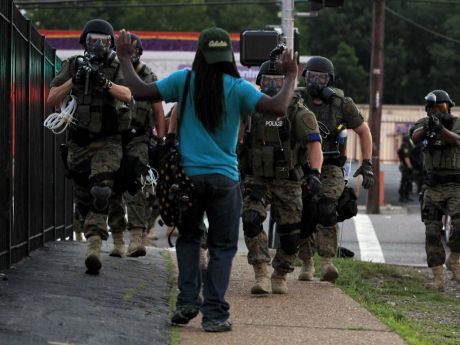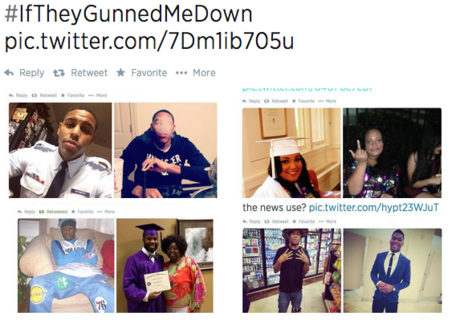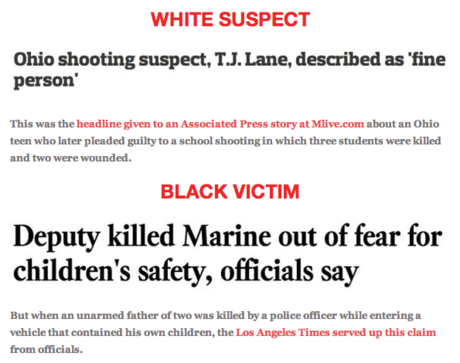Media
Teaching Ferguson
A collection of links and ideas for teachers of psychology
Posted August 19, 2014
As a psychologist and a human being, I have been following the events unfolding in Ferguson, Missouri with a combination of horror and deep sadness.

As a teacher of psychology, I have been struggling with how to talk to my students about these events, how to unpack together how we could possibly find ourselves in this place–in this country, in this century.
As I restructure several sections of my Introductory Psychology course to focus on this unpacking, I thought that other teachers of psychology might be going through the same process. In the interests of collaboration, I thought I'd share some links and ideas about where and how I plan to draw these connections.
Cogntive Biases and Media Biases
In the first weeks of Introductory Psychology, my students and I consider common biases in human reasoning, and also how selective/biased/inaccurate media reporting can contribute to these biases.
Following the media reporting of Michael Brown's killing, a social media campaign cropped up on Twitter with the hashtag #ifIweregunneddown. This powerful campaign had contributors choosing two contrasting photos of themselves from their social media accounts - one that reflected their achievements/contributions and one that they thought media outlets would select if they were the victim of a police shooting. There are many great visual examples for use, and a discussion could be based around how the race of the victim might impact media choices, and the impact these choices then have on public perception of the event.

Even more disturbingly, one could pit against each other some of these headlines, which demonstrate how the media portrays white perpetrators of violence versus black victims of violence.

Finally, in a criminal example of selective reporting/editing, this media outlet took a 4-year-old boy's comment that he was not afraid of being shot when he grew up because he'd have his own gun because he wanted to be a police officer and edited out the boy's aspirations to make it sound like he was instead an aspiring criminal.
Social Roles
Later in the semester when we enter the section on Social Psychology, we discuss the classic Stanford Prison Experiment in which psychologist Phil Zimbardo randomly assigned Stanford undergraduates to play either prisoners or guards in a simulated prison environment. For those unfamiliar with the experiment, it needed to be halted early because the participants in the study became so involved in their roles (the guards sadistic, the prisoners overly passive) that they were at risk of psychological harm (though it should be noted that this experiment has come under a great deal of critism in recent years).

In the past we've considered the events at the Abu Ghraib prison as a chilling modern-day illustration of the dangers of social roles. In terms of the events at Ferguson, psychologist Dominic Packer and writer Mark Morford both make compelling cases that the over-militarized response to protests in Ferguson most likely escalated the tensions on both sides–that if the police officers had responded as peace-keeping members of the community rather than riding in on tanks in full combat gear, we might be watching something quite different on our television screens.
Implicit Attitudes
This last application needs little explanation. Beginning with our discussion of biases in media reporting, throughout the semester my students and I consider the messages we receive from our larger culture about any way in which people differ–race, gender, age, sexual orientation, weight. We consider how these messages are transmitted from our very first participations in the broader culture, how they influence our perceptions, beliefs, and actions without our even being aware of them, and the implications they hold for how people are treated–in college applications, job interviews, first dates.
Michael Brown's death underscores the very worst of the devastating impacts these implicit attitudes can have.
______________________________________
When my lecture slides are ready, I'll post them here for anyone to use. I would love to hear other ideas in the comments or by email at sarahDOTroseDOTcavanaghATgmailDOTcom.


